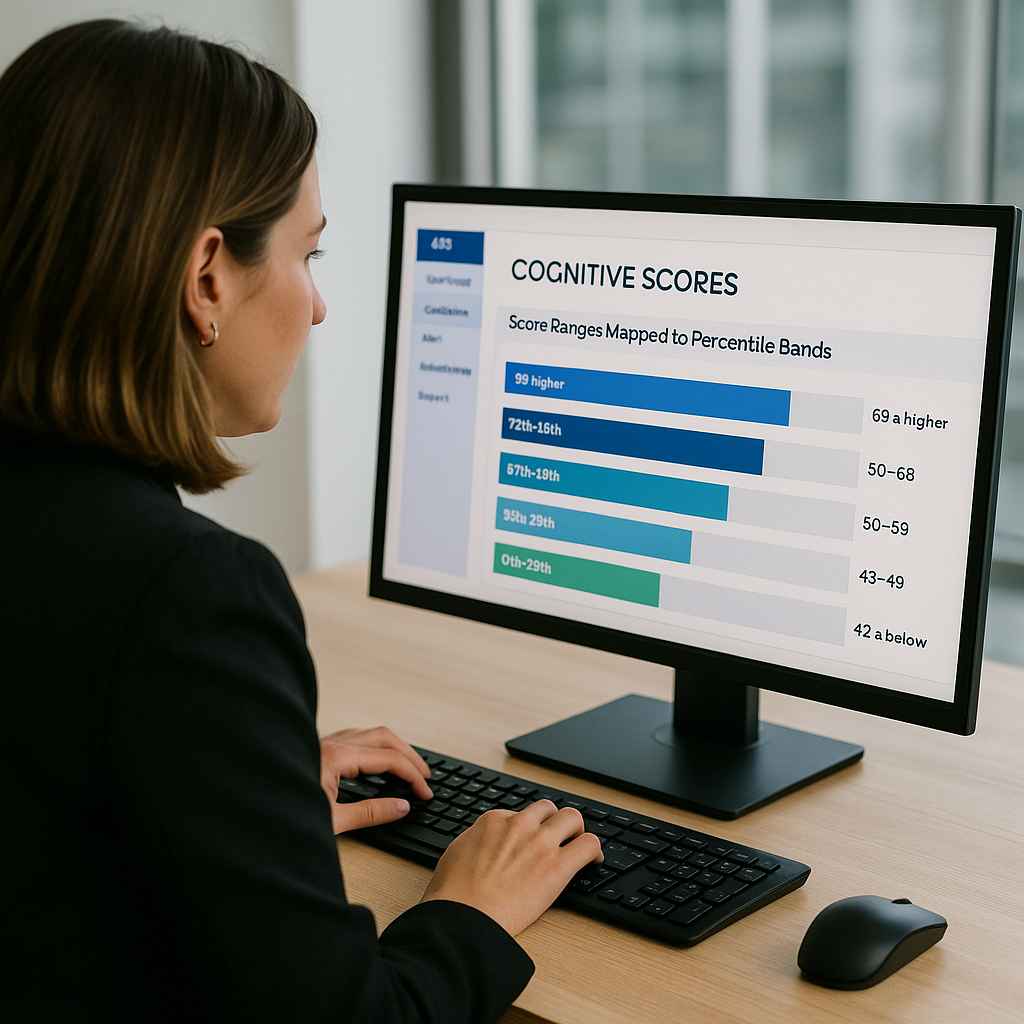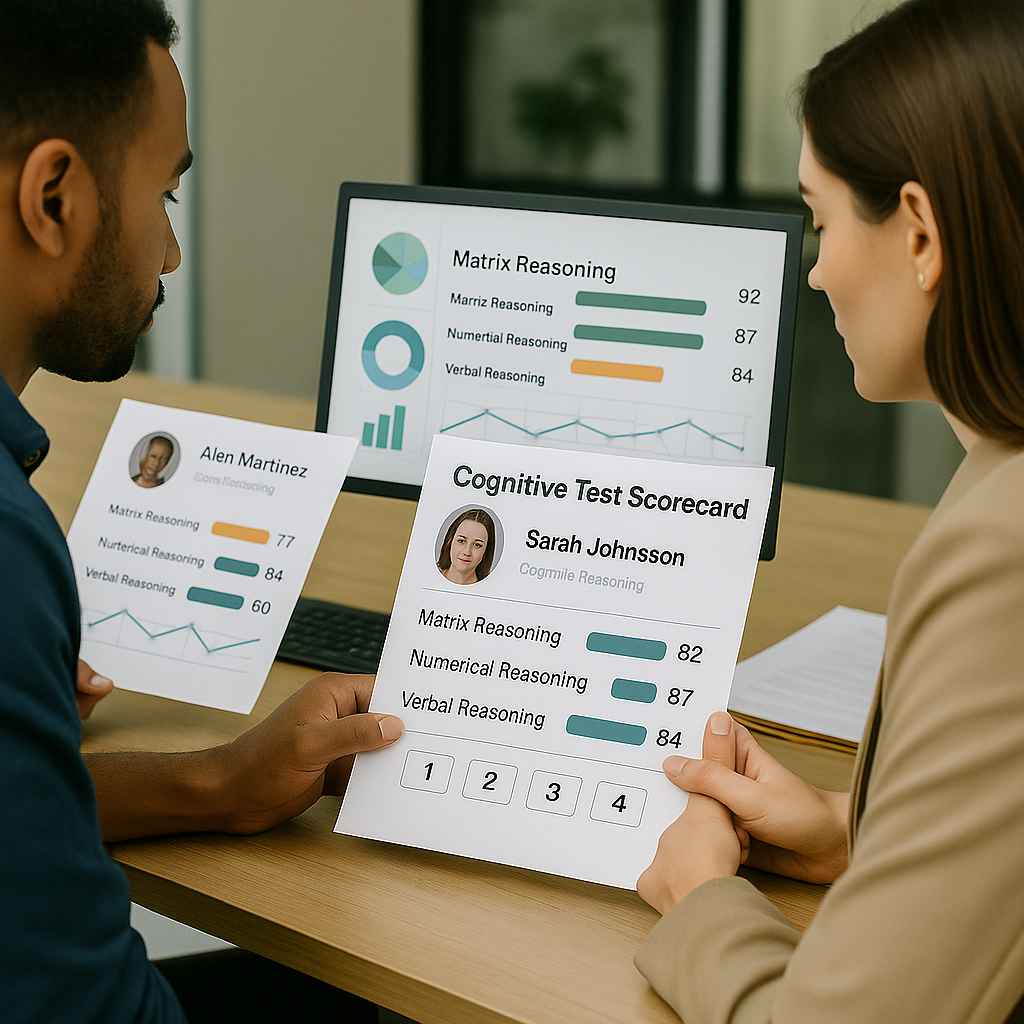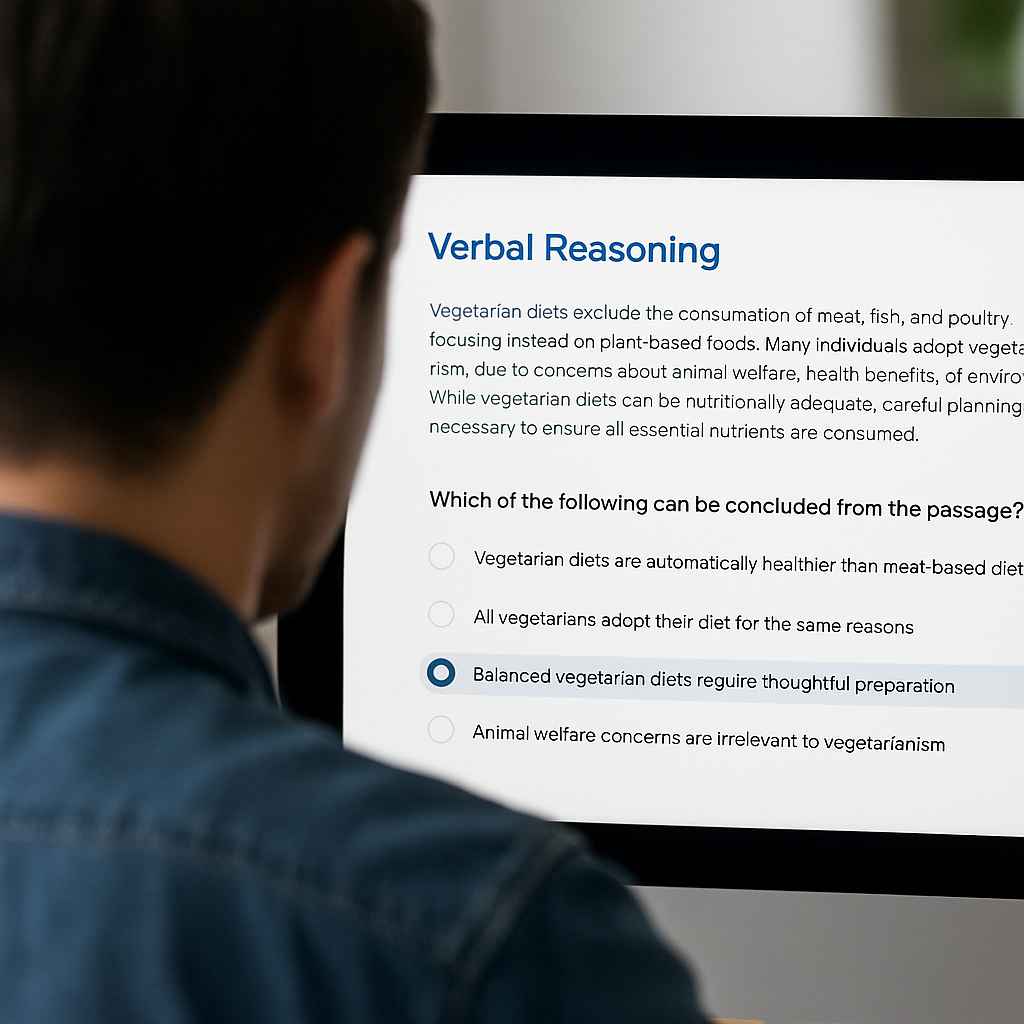Content
Hiring decisions can feel like a gamble. A great resume doesn’t always mean a great employee and gut instinct is no substitute for objective insights.
That’s where cognitive ability tests come in.
These tests help you evaluate how candidates think, solve problems, learn new skills, and adapt to challenges. And when used properly, they can predict job performance more accurately than interviews alone.
This guide breaks everything down:
✅ What cognitive ability tests are
✅ When and why to use them in hiring
✅ Types of tests available
✅ Sample questions and real-world use cases
✅ How to choose the right test tools
Let’s dive into the science and strategy behind these assessments—without the jargon.
What Are Cognitive Ability Tests?
At their core, cognitive ability tests assess a person’s mental functioning: logic, memory, attention, processing speed, language comprehension, and reasoning.
They help answer a key question:
“Can this candidate handle the mental demands of the job?”
You might also hear these referred to as:
- Aptitude tests
- Mental ability tests
- Reasoning tests
- Cognitive assessments
Each of these terms falls under the same umbrella, though some tests focus more on specific areas like numerical logic or verbal comprehension.
For more foundational context, explore What Is Cognitive Assessment? Meaning, Uses, and Examples, which lays out the background behind cognitive testing in plain terms.
Why Use Cognitive Ability Tests in Hiring?

Because they work.
According to decades of industrial-organizational psychology research, cognitive ability is one of the strongest predictors of job success—especially in roles that require decision-making, problem-solving, or fast learning.
Here’s why top-performing hiring teams rely on them:
| Hiring Challenge | How Cognitive Tests Help |
| Overwhelmed with applicants | Quickly shortlist top thinkers |
| Inconsistent interview performance | Add a standardized, objective layer of evaluation |
| High turnover in analytical roles | Match candidate strengths to job demands |
| Skills needed change fast (e.g., tech roles) | Test for learning agility—not just current knowledge |
Want to go deeper into the strategic benefits? See our resource on Pre-Employment Cognitive Assessments: What Recruiters Need to Know for practical insights.
Types of Cognitive Ability Tests You Should Know
Depending on your hiring needs, you might use one or more of the following:
| Test Type | What It Measures | Example Use Case |
| General Cognitive Ability | Overall thinking, memory, logic | Managerial roles, all-round performance |
| Matrix Reasoning | Abstract, visual logic | Tech, design, leadership candidates |
| Numerical Reasoning | Math and number-based problem-solving | Finance, analytics, engineering |
| Verbal Reasoning | Language comprehension and logic | Sales, HR, client-facing roles |
👉 Explore these tests on our platform:
Each test is designed with workplace-relevant logic, not abstract academic questions.
What Do These Tests Actually Look Like?

Cognitive ability tests come in many formats, but most include multiple-choice, timed questions that challenge a candidate to think clearly and quickly.
Here are a few example formats:
| Question Type | What It Looks Like |
| Pattern recognition | Complete a matrix of symbols or shapes |
| Logical deduction | “If all A are B, and all B are C…” type problems |
| Math problems | Percentage changes, sequences, or word problems |
| Reading comprehension | Read a paragraph and answer based on logic |
To see these in action, check out Cognitive Assessment Examples: Real Questions & Use Cases, which includes walk-throughs of actual test scenarios.
When Should You Use Cognitive Tests in Hiring?
You don’t need to test every applicant for every role. Instead, use cognitive tests where they add the most value:
✔️ Best Use Cases
- Early screening for roles with large applicant pools
- Evaluating internal promotions to higher-level positions
- Hiring for problem-solving roles like analysts, developers, or team leads
- Filtering applicants for apprenticeships or graduate programs
For faster processes, try Short Cognitive Assessments: Efficient Tools for Fast Screening, or Quick Cognitive Assessments: When & How to Use Them in Hiring.
Choosing the Right Cognitive Testing Platform
Not all tools are equal. Some are designed for enterprise use; others are lightweight and flexible. Here’s how to compare them:
| Factor | What to Look For |
| Test types available | Does it include the core cognitive tests you need? |
| Customization options | Can you adjust difficulty, time limits, or question types? |
| Reporting & scoring | Does it offer clear, benchmarked scores with role insights? |
| Anti-cheating measures | Are there proctoring tools, IP tracking, or timers? |
| Candidate experience | Is the test easy to take on mobile and desktop? |
When selecting a platform, it’s also essential to consider fairness and legal defensibility. This study on cognitive test content and adverse impact explores how certain types of cognitive assessments may lead to unintentional biases if not carefully designed—an important consideration for employers committed to inclusive hiring.
For detailed tool comparisons, see Top Cognitive Assessment Tools for Hiring Success.
How to Understand Test Scores (and What to Do Next)

It’s not just about “high score = good candidate.” Cognitive test scores need context.
Here’s a basic breakdown:
| Score Range | What It Means |
| 90–100 percentile | Exceptional reasoning skills |
| 70–89 percentile | Strong cognitive ability |
| 50–69 percentile | Average; meets general role requirements |
| Below 50 percentile | May struggle with job complexity or training |
Always combine scores with other data, like structured interviews or role-specific skill tests. To interpret results effectively, check Understanding Cognitive Assessment Scores: What Do They Mean?
Related Pages
- What Is Cognitive Assessment? Meaning, Uses, and Examples
- Cognitive Behavioral Assessment: What It Is & How It’s Used
- How Much Do Cognitive Assessments Cost? A Practical Overview
- Top Cognitive Assessment Interview Questions to Ask Candidates
FAQ
Are cognitive ability tests valid for all job roles?
Not all. They’re best for roles requiring decision-making, learning agility, or analytical thinking. For highly manual or repetitive roles, other tools might be more suitable.
Can candidates prepare for these tests?
To some extent, yes. They can practice logic puzzles, mental math, and reading comprehension. But the goal is to measure innate ability, not learned facts.
Are these tests biased?
When designed and validated properly, cognitive tests are among the most fair and predictive hiring tools. They help reduce bias that’s often present in resume reviews or unstructured interviews.
Should I use cognitive tests alone?
No. Always combine them with structured interviews, skill assessments, and job simulations. Cognitive testing is powerful—but it’s one part of a complete hiring system.
Final Thoughts
Cognitive ability tests give you a real edge in hiring. They go beyond resumes and interviews to reveal how candidates actually think, helping you make faster, fairer, and smarter decisions.
From pattern recognition to reading comprehension and logical problem-solving, these tests bring objective data into your hiring process.
Whether you’re building a pipeline for junior roles or making critical senior hires, don’t underestimate the power of a good cognitive assessment.
👉 Book a free demo and let’s show you how to bring cognitive testing into your hiring flow with ease.
